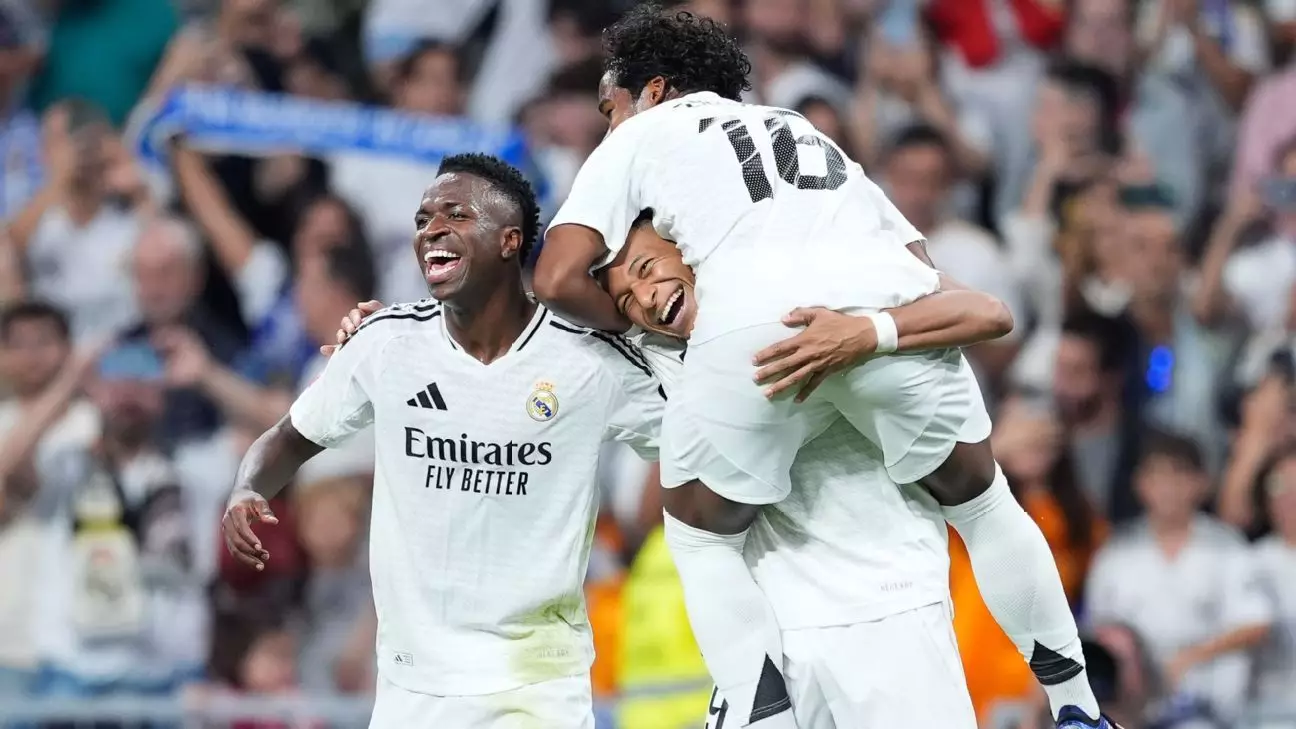Carlo Ancelotti and his Real Madrid side showcased their resilience during a 4-1 triumph over Espanyol in LaLiga, a match that illustrated both their current challenges and potential. This contrast was starkly evident; once again, Real Madrid struggled significantly in the first half, marking a trend they have encountered throughout the season. With only one first-half goal to their name this season and even conceding an own goal by Thibaut Courtois shortly after halftime, questions arose about their attacking efficiency and coherence from the start.
The introduction of Vinícius Júnior proved pivotal, representing a calculated adjustment by Ancelotti. His fresh legs and dynamic style injected life into a stuttering Madrid offense which had been stagnating. Following his entry, Madrid scored four goals—a turnaround that showcased their talent but also emphasized the critical transitions the team needs to streamline. This tactical shift underscored a broader theme of adaptability, which is essential for any team intending to compete at the highest levels.
Ancelotti’s assessment post-match reflected confidence in his team’s gradual adaptation. The coach noted improvements in rhythm and ball movement—a critical observation, as quicker passing transitions often dictate the pace of play in top-flight matches. The fourth goal in particular, born out of a sensational counter-attack, highlighted the tactical fluidity that has begun to return to Real Madrid’s game. Ancelotti’s emphasis on mobility indicates a strategic intention to foster a more dynamic attacking threat, which could lead to better overall performance in future matches.
Moreover, Real Madrid’s recent unbeaten run in LaLiga, standing at four wins and two draws, suggests that even if they have not always played convincingly, the team knows how to grind out results. This mental fortitude is a hallmark of successful clubs and speaks volumes about the culture Ancelotti is nurturing within the squad.
Despite the promising outcome against Espanyol, it is evident that Real Madrid still needs to address their issues from the outset of matches. Ancelotti acknowledged the ongoing struggle to shift away from their underwhelming first-half performances. The team’s current reliance on late magic, demonstrated by their tendency to score predominantly in second halves, raises concerns about their initial setup and strategy.
Talented players like Rodrygo, Kylian Mbappé, and Vinícius Júnior represent a wealth of attacking options, but Ancelotti will need to find the right balance and partnerships up front to maximize their impact. With new signings like Endrick also being integrated into the squad, finding the proper synergy among various attacking players must become a focal point moving forward.
Ultimately, Real Madrid’s path to reclaiming their place among Europe’s elite is firmly tied to how quickly they can bridge the gap between their first and second-half performances. Ancelotti’s leadership will be pivotal in shaping this trajectory. As the season unfolds, fans will be closely monitoring how these tactics evolve, and whether Madrid can not only continue their undefeated streak but also dominate from start to finish. Accomplishing this will be crucial for their ambitions, both domestically in LaLiga and in their pursuit of continental glory.

Leave a Reply